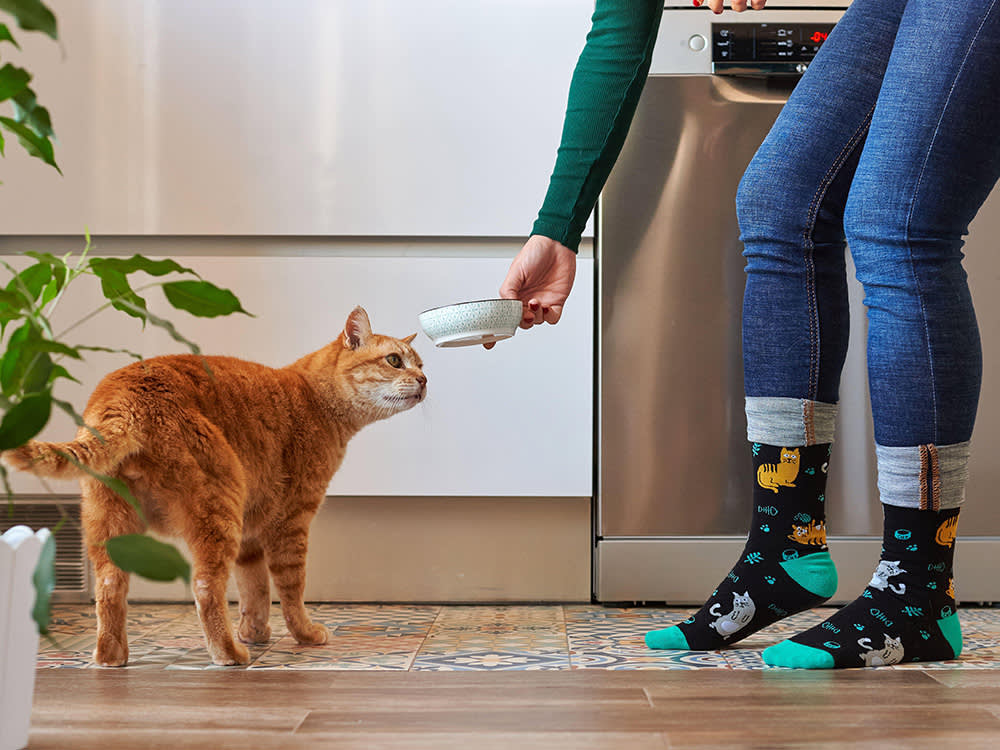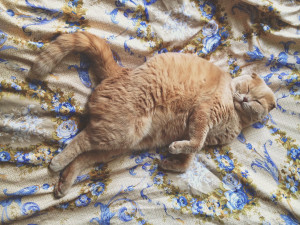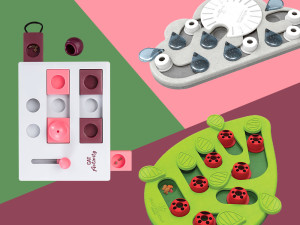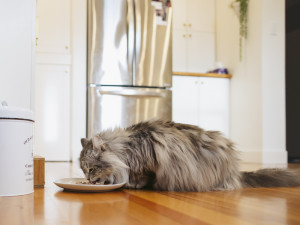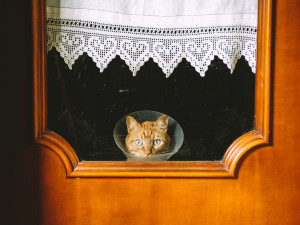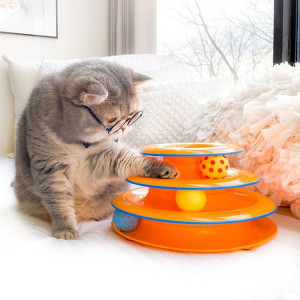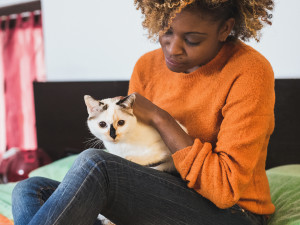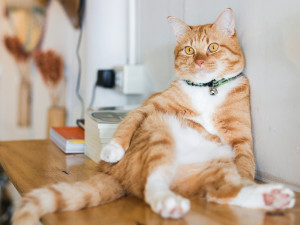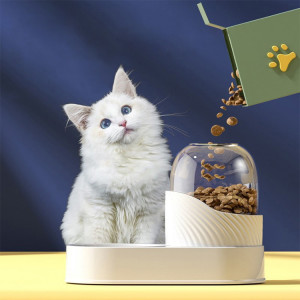How Long Can Your Always-Hungry Cat Wait For Dinner?
Sometimes, they actually do need to eat.
Many cats put on Oscar-worthy performances to convince their parents they are constantly starving. Often, they start with jumping on your head at 4 a.m., perhaps followed by biting your toes, stealthily pushing priceless breakables off the counters, or pacing in front of their bowls and yowling nonstop. But how can you tell if your cat is really getting enough to eat, and how long can they reasonably wait for their next meal? There are a number of factors that need to be considered to answer these questions. For starters, how old your cat is, the kind of foods your cat eats, and any health conditions your cat has can all influence how often your cat needs to eat.
For example, there are big differences in the nutritional needs of growing kittens and pregnant cats, compared to adult cats who are mostly sedentary indoors. It is always best to consult your veterinarian and defer to their recommendations when it comes to the particular nutritional needs of your cat. Here are some general guidelines that may help.
How long can your cat wait between meals?
The short answer is that it depends. And no one knows exactly. Wild felines who hunt need to eat many small meals throughout the day but may also go long stretches without food. On average, hunting cats eat about eight to 10 small prey a day, so they spend the majority of their waking time stalking, chasing, and hunting in order to meet their dietary needs. For our pet cats who spend most of their time lounging indoors, they tend to burn many fewer calories and have access to higher quality diets. Their needs for food are quite different. Studies have shown that cats’ stomachs empty between four to eight hours after a meal, depending on what they eat. So, while your cat may be able to go up to eight hours between meals, most nutritionists recommend feeding many small, frequent meals throughout the day to attain the best physical and mental health for your cat. So, if you’re planning to go out of town, it’s important that you instruct your cat sitter as to how often your particular cat needs to eat.
How much do you spend on your pet per year?
Do different foods affect hunger differently?
What you feed your cat may affect how often they need to eat and how quickly they become hungry after a meal. Some factors that influence this include protein content, fiber content, and whether you feed a dry kibble versus canned wet food.
In cats, protein content influences their satiety, or feeling of fullness, the most. A high-protein diet may keep a healthy cat feeling full the longest. Some cats should not have high-protein diets, such as those with kidney disease, so make sure to speak with your vet before switching to a high-protein diet.
Fiber is also known to play a role in feelings of fullness and to slow down the emptying of the stomach and intestines. This seems to play a smaller role in cats, compared to humans or dogs. Commercial high-fiber cat diets have not been shown to significantly affect fullness in cats, but certain fiber supplements containing inulin do seem to have more of an effect. As always, consider these supplements after consulting with your veterinarian to make sure it is safe and appropriate for your cat. Be aware that adding too much fiber or introducing it too suddenly can lead to gastrointestinal upset, such as nausea and diarrhea.
When it comes to keeping cats full, there is some evidence that kibble actually stays in the stomach longer than wet food, which may keep them feeling full longeropens in new tab. The debate over feeding dry food versus canned food is endless, and there are many valid reasons to choose one over the other. In general, canned food tends to have higher water content, which is very important for keeping cats hydrated. Canned food usually has a pureed consistency, which may cause it to be digested more quickly and easily. In most cases, cats should not eat dry food exclusively for overall good health, but there may be strategic ways to incorporate small amounts of dry food into your cat’s diet.
How can you keep your cat from constantly crying for food?
Depending on your cat’s particular life stage and health, there are many ways to help them feel satisfied while allowing you to get some sleep, too. For kittens and pregnant cats that need to eat frequently, a timed feeder may be a good option to provide snacks overnight and in the early morning. Remember that these feeding devices are not usually recommended for cats in other life stages because they can lead to overeating and risk of obesity.
For adult cats, food puzzles are a great way to provide smaller, frequent meals while improving your cat’s activity level and mental enrichment. These can be homemade or commercially available puzzle-style feeders that require your cat to “work” for their food. It slows them down and allows them to snack gradually and also gives them a challenge to figure out how to get the food out. The simplest form of a food puzzle would be just hiding kibble around the room for your cat to seek out. More complex puzzles are also available in a variety of styles.
In general, providing smaller, frequent meals may help your cat to feel more satisfied and for those cats that have no health concerns, adding a little extra fiber and higher protein content may also keep them feeling full longer.
Look for these signs of actual starvation or illness in cats.
It is important to note that cats cannot safely skip several meals in a row. This is especially serious for young kittens, pregnant cats, cats with underlying health problems, and overweight and obese cats. If your cat skips multiple meals, it is a sign of illness, and they should be seen by a veterinarian right away. It is also not safe to intentionally skip feedings as a weight-loss strategy. Overweight cats are prone to a condition called hepatic lipidosis, aka fatty liver, that can be triggered by skipping meals. For this reason, it is critical to follow your vet’s recommendations on feeding guidelines, especially if you are trying to encourage your cat to reach a healthy weight.
